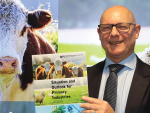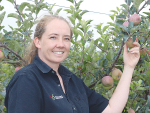A new international study serves as a stark warning for New Zealanders: our health and wellbeing are in our hands, and increasing our intake of fruit and vegetables is a key step to reducing the pressure on our healthcare system.
The new study of 45,000 people aged 50+ from 26 different European countries has confirmed a direct link exists between the amount of fresh produce we regularly consume and our chances of being admitted to hospital. Fewer and shorter hospital stays also reduce governments' healthcare expenditure, possibly by billions.
The study, led by Brunel University of London, investigated the association between fruit and vegetable consumption and hospitalisation rates in older people as well as their use of primary care health services.
Participants were asked to indicate how often they consume fruit or vegetables, selecting from daily, 3 to 6 times a week, twice a week, once a week, or less than once a week. The study found that people who regularly consumed fresh produce reduced their hospitalisation risk, recording fewer hospitalisations and shorter hospital stays.
The research also revealed that people who eat more fruit and vegetables not only tend to avoid the hospital more often, but also seek help earlier from GPs, and may also enage in other healthy behaviours like regular exercise - often leading to better health outcomes.
"This study serves as a wake-up call for all New Zealanders," says Dr Carolyn Lister, principal scientist & science team leader - food & health information and trustee for 5+ A Day Charitable Trust.
"We need to prioritise our health now to prevent larger challenges down the road, especially as the Baby Boomer generation continues to age and obesity rates climb among younger New Zealanders."
According to the most recent Stats NZ projections, our population is aging quickly. By 2028, approximately 1 million people will be over the age of 65, but this could double to 2.2 million in the next 50 years, making up 30% of the population. With the health system already stretched to its limits, the need for preventative measures, like eating more fruit and vegetables, has never been more critical.
The study's researchers also pointed to a 2019 American study that found increasing fruit and vegetable consumption would prevent approximately 1.93 million cardiovascular disease events, and save US$39.7 billion (NZ$69.2 billion) in healthcare costs.
The benefits of a diet rich in fruit and vegetables are not just seein in the research; here at home, the 5+ A Day Charitable Trust has been tackling the challenge from an early age. The Trust supports the successful Fruit in Schools (FIS) programme, which has been providing free fruit to over 126,000 primary school students across New Zealand for 20 years. This initiative helps kids develop healthy eating habits and improves their learning and concentration in the classroom.
"Eating fresh fruit and vegetables isn't jsut about the long-term benefits," says Lister. "The health, educational, and social benefits for children are immediate, too. We're equipping the next generation to make better food choices, which will help them lead healthier lives in the future and less pressure on our health systems," says Lister.
But the situation in New Zealand remains concerning: Only one in four Kiwis currently eat the recommended five or more servings of vegetables daily. The message is clear, New Zealanders need to increase their consumption of fruit and vegetables to protect their health and reduce strain on the health system.
"There's a huge opportunity here to make a real difference," says Lister. "Each fruit and vegetable offers a unique combination of nutrients and phytochemicals that are essential for our health."
"Studies show the most consistent decrease in disease risk is observed when people increase the diversity of the vegetables they eat."
As New Zealand's health system faces increasing pressure, taking charge of our health now, with simple changes like increasing our intake of fresh produce, could lead to substantial long-term benefits for both individuals and the wider healthcare system.


















